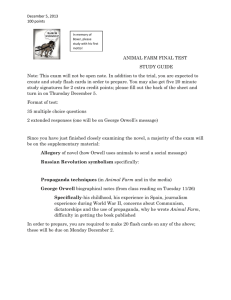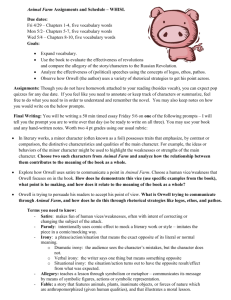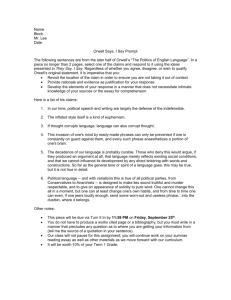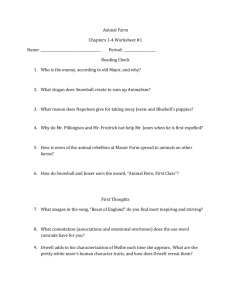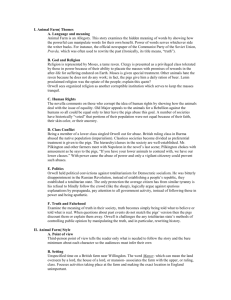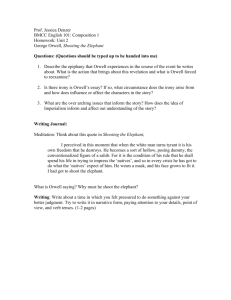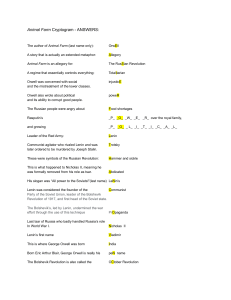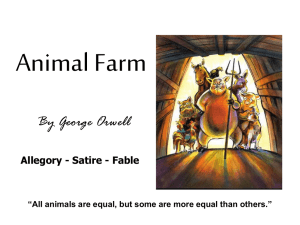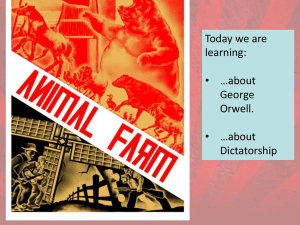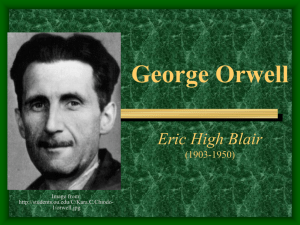ANIMAL FARM
advertisement
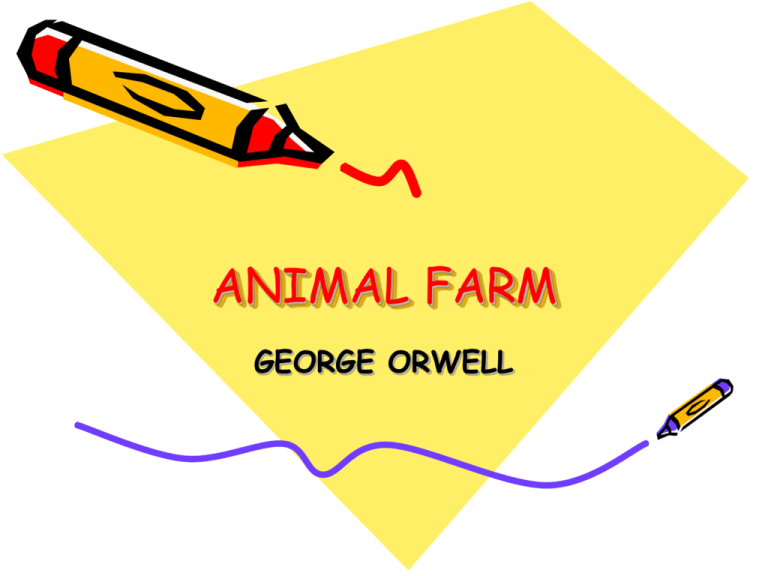
ANIMAL FARM GEORGE ORWELL “Animal Farm was the first book in which I tried, with full consciousness of what I was doing, to fuse political purpose and artistic purpose into one whole.” -- George Orwell Unit Questions • #1 How does an author’s background influence his/her works? • #2 How do the stylistic techniques of an author impact the message of the work? • #3 What causes the disintegration of a civilization? George Orwell Biography “I do not think one can assess a writer’s motives without knowing something of his early development. Before he ever begins to write he will have acquired an emotional attitude from which he will never completely escape.” George Orwell, “Why I Write” • One of the best-known political writers of the 20th century • Given Name: Eric Arthur Blair • Born in India, 1903 • Attended school in England • Returned to India and served as a policeman in the Indian Imperial Police • Returned to England in 1927 to become a full-time writer • Lived in poverty • 1937 went to Spain to fight fascism • Wrote Animal Farm in 1943-1944 in London (published in 1946) • Finished writing 1984 in 1948 • Died of complications from tuberculosis in 1950 LITERARY TECHNIQUES • Allegory • Fable • Symbolism ALLEGORY • Definition: a representation of an abstract or spiritual meaning through concrete or material forms; figurative treatment of one subject under the guise of another. • Concrete Level: a story about animals on a farm in England • Abstract Level: a commentary on Soviet Russia • More General Level: commentary on humankind overall FABLE • Definition: a short tale to teach a moral lesson, often with animals or inanimate objects as characters • One of the oldest literary forms (older than the novel or short story) • Rudyard Kipling’s Just So Stories are a modern example of the fable • Orwell admired Kipling; his stories most likely influenced Orwell • Orwell took the short animal fable and extended it to a short novel SYMBOLISM • Definition: a person, place, thing or event that stands both for itself and for something beyond itself. • • • • • • Farmer Jones = Russian Czar Nicolas II Humans = capitalists / communists Old Major = Karl Marx / (Vladimir Lenin) Snowball = Leon Trotsky / (Vladimir Lenin) Napoleon = Joseph Stalin Squealer = Pravda (Russian newspaper) • • • • • Pigs = Communist Party loyalists Dogs = KGB Boxer & Clover = proletariat Moses = religion Windmill = Russian industry Dramatic Irony / Satire • Dramatic Irony = irony that occurs when the meaning of the situation is understood by the audience but not by the characters • Satire = making fun of human folly
